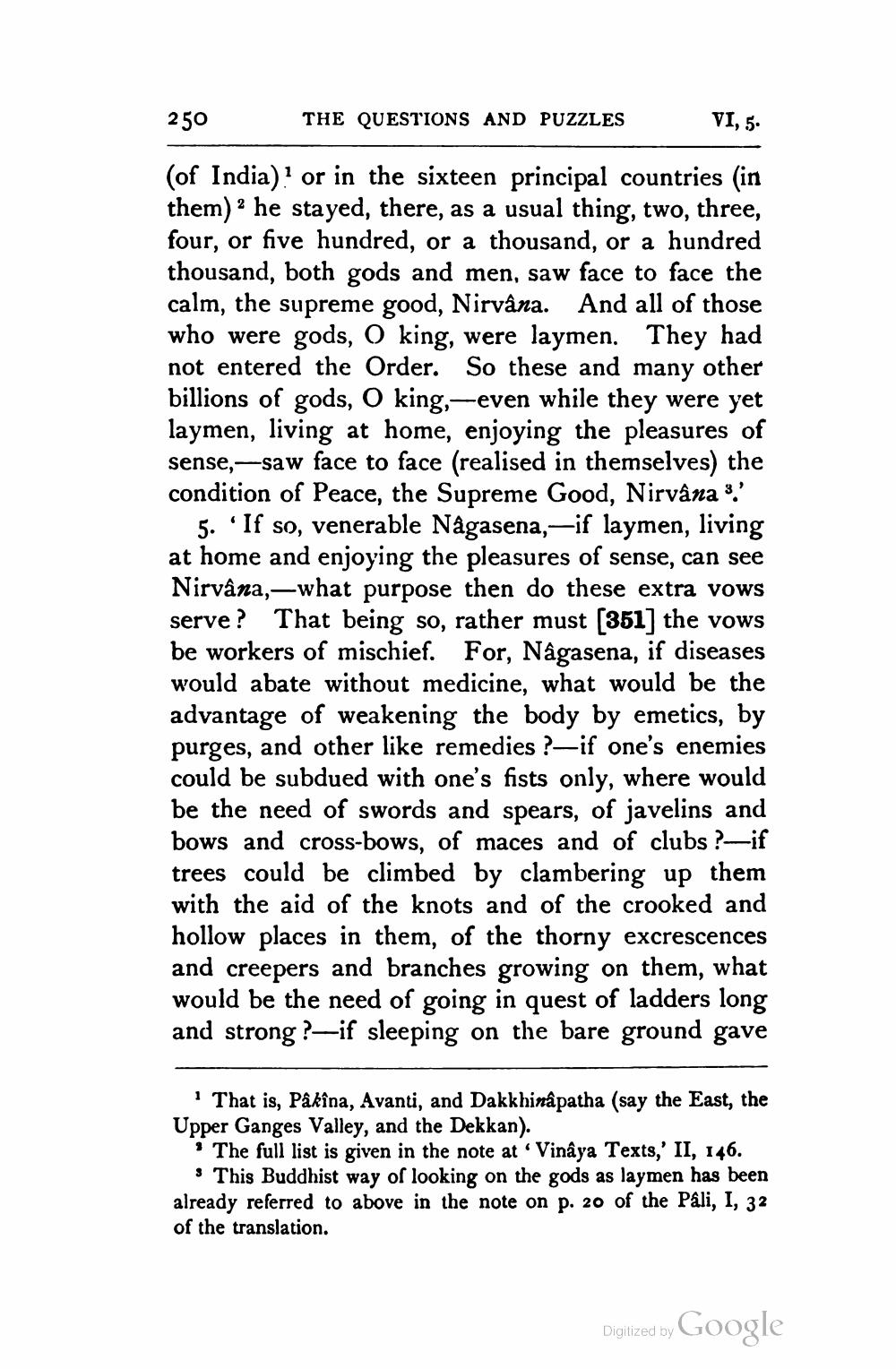________________
250
THE QUESTIONS AND PUZZLES
VI, 5.
(of India)? or in the sixteen principal countries (in them) 2 he stayed, there, as a usual thing, two, three, four, or five hundred, or a thousand, or a hundred thousand, both gods and men, saw face to face the calm, the supreme good, Nirvana. And all of those who were gods, ( king, were laymen. They had not entered the Order. So these and many other billions of gods, O king,-even while they were yet laymen, living at home, enjoying the pleasures of sense,-saw face to face (realised in themselves) the condition of Peace, the Supreme Good, Nirvana 3.'
5. 'If so, venerable Någasena,-if laymen, living at home and enjoying the pleasures of sense, can see Nirvana,—what purpose then do these extra vows serve? That being so, rather must [351] the vows be workers of mischief. For, Nagasena, if diseases would abate without medicine, what would be the advantage of weakening the body by emetics, by purges, and other like remedies ?-if one's enemies could be subdued with one's fists only, where would be the need of swords and spears, of javelins and bows and cross-bows, of maces and of clubs ?-if trees could be climbed by clambering up them with the aid of the knots and of the crooked and hollow places in them, of the thorny excrescences and creepers and branches growing on them, what would be the need of going in quest of ladders long and strong ?-if sleeping on the bare ground gave
That is, Påkina, Avanti, and Dakkhinâpatha (say the East, the Upper Ganges Valley, and the Dekkan).
• The full list is given in the note at Vinaya Texts,' II, 146.
* This Buddhist way of looking on the gods as laymen has been already referred to above in the note on p. 20 of the Pali, I, 32 of the translation.
Digitized by Google




